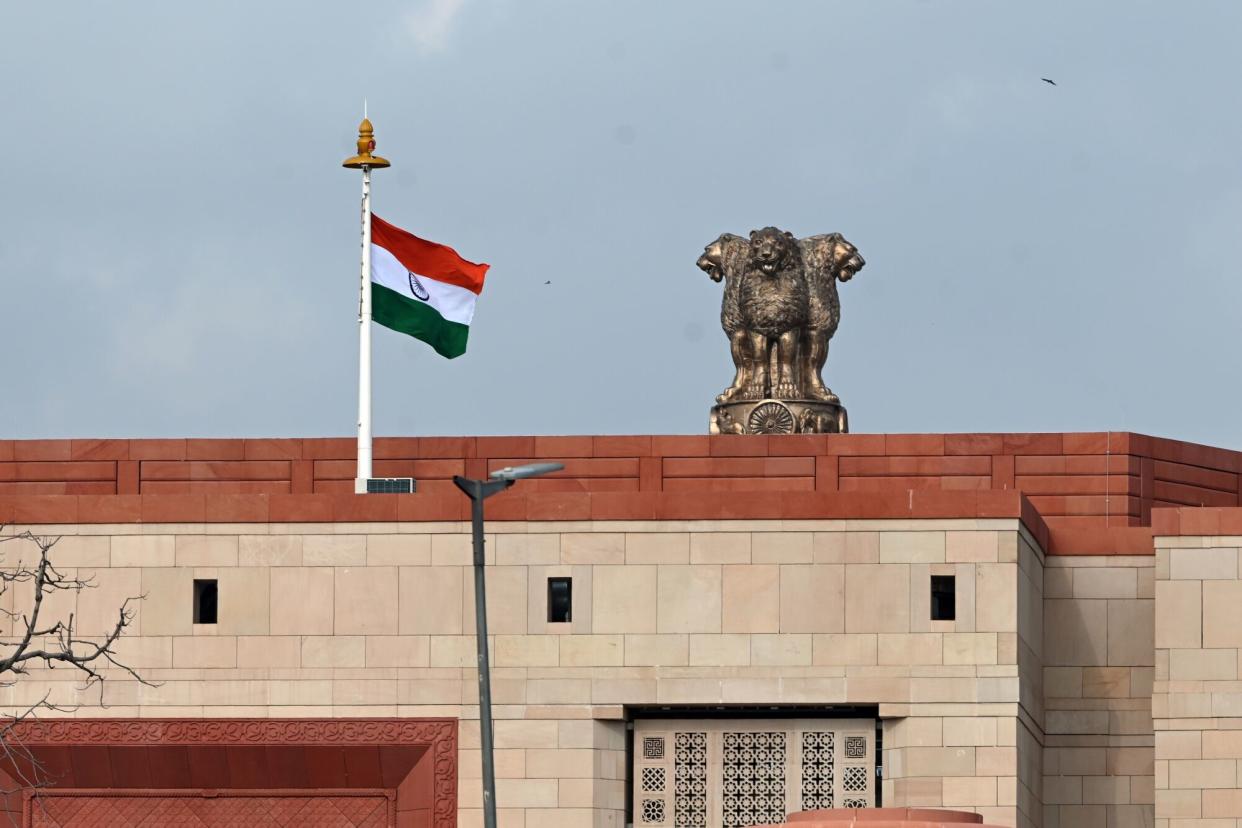Australia Reporter Leaves India, Citing Visa Troubles, Video Ban

- Oops!Something went wrong.Please try again later.
(Bloomberg) -- Sign up for the India Edition newsletter by Menaka Doshi – an insider's guide to the emerging economic powerhouse, and the billionaires and businesses behind its rise, delivered weekly.
Most Read from Bloomberg
Biden’s New Chopper Is Demoted After Scorching White House Lawn
Tech Giants Roar as Tesla Spikes in Late Hours: Markets Wrap
Billionaire Pinaults Fight to Pull Gucci Off the Discount Rack
The South Asia bureau chief for Australia’s ABC News left India after she said she faced problems extending her visa following a critical report about Prime Minister Narendra Modi’s government.
Avani Dias said on social media platform X that she returned to Australia last week after being told by an Indian government official that she wouldn’t get an extension on her visa because of her reporting. The government eventually gave her a two-month extension after lobbying by the office of Australia’s Foreign Minister Penny Wong and other diplomats, ABC News reported. The notification came 24 hours before Dias was due to leave the country, she said.
Dias had published a video report on YouTube Inc. last month about India’s alleged involvement in the murder of a Sikh separatist leader in Canada. YouTube has blocked the video from being viewed in India, saying it’s following an order from the government related to national security or public order.
Indian officials extended Dias’s visa until the end of elections, and she was told her case would be taken up again after that, according to government officials familiar with the matter, who asked not to be identified as the information isn’t public. ABC didn’t have the required permissions to film along the India-Pakistan border in its video documentary, the officials said. The government also objected to ABC’s documentary for giving a platform to extremists and separatists, the people said.
India’s Ministry of External Affairs declined to comment on the matter when contacted Tuesday.
In the video, Dias and her team are shown being stopped by security officials at the Wagah border between India and Pakistan and prevented from filming a public ceremony, which takes place daily, of soldiers on both sides taking down their flags.
India is holding national elections from April 19 to June 1, with Modi widely expected to secure a third consecutive term in power.
Australia has been trying to ramp up its diplomatic and economic ties with India under Modi, with Canberra seeking to diversify its trade partners in the wake of the tensions with China.
Local and international media have faced restrictions in India for reporting perceived as critical of Modi and his government. Last year, the British Broadcasting Corp.’s offices in New Delhi were raided by Indian tax authorities, which followed its publication of a documentary critical of Modi’s role in the deadly 2002 Gujarat riots.
Journalists at online paper NewsClick also had their homes and offices raided last year, with some arrested under anti-terrorism laws.
India’s ranking in the World Press Freedom Index fell to 161 out of 180 countries last year, according to Reporters Without Borders, which compiles the index.
--With assistance from Ben Westcott.
Most Read from Bloomberg Businessweek
A Hedge Fund Billionaire’s Cash Helped Fund a ‘Predatory’ Lender
Big Junk Food’s Campaign to Get You Eating Doritos and Oreos for Dinner
How a Massive Hack of Psychotherapy Records Revealed a Nation’s Secrets
©2024 Bloomberg L.P.


